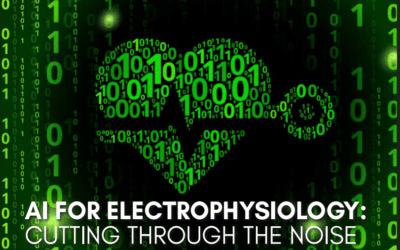The use of AI in electrophysiology is increasing; it’s being applied to personalize treatment to achieve better outcomes, to manage patients more effectively, and it’s relieving the burdensome workflow of a data-intensive clinical practice.
Electrophysiology is among the most data-driven of medical specialties, perhaps because these cardiac physicians chronically deal with the risk of imminent death. On the intervention side, when performing cardiac ablations, they work with highly technical patterns of electrical signals in real-time to figure out the source of problems so they can fix them. When it comes to patient management, they face an ever-increasing burden of daily downloads of data from cardiac implantable electronic devices (CIEDs), including pacemakers, ICDs (implantable cardioverter defibrillators), cardiac rhythm therapies, and implantable loop recorders (ILRs). In the US, where cardiac arrhythmias impact about 14.4 million patients, CIEDs have become the prevalent treatment choice. More than 300,00 people are implanted with cardiac monitoring devices every year, and this number is likely to increase because of the increasing prevalence of atrial fibrillation.
Visit MedTech Strategist for the full article
By Arnaud Rosier, CEO of Implicity
Originally published by MedTech Strategist

